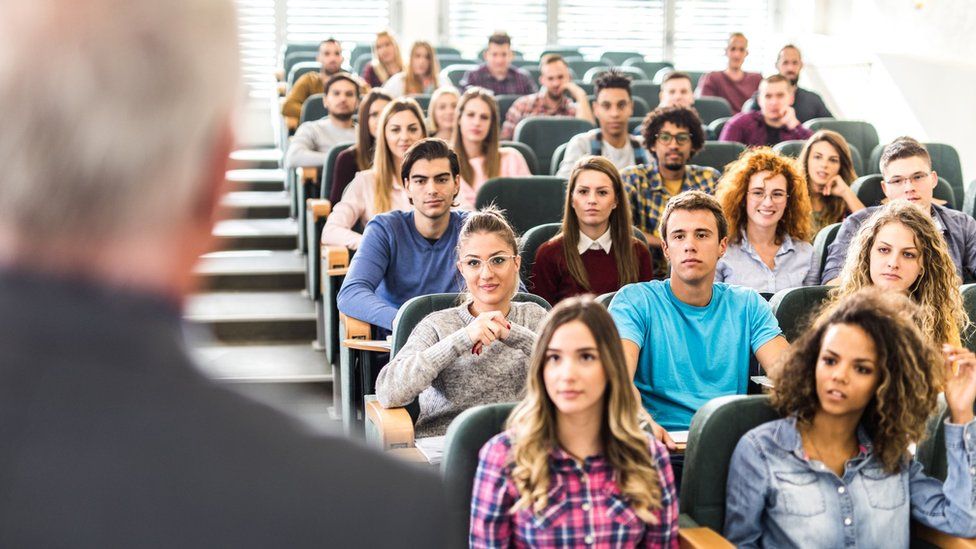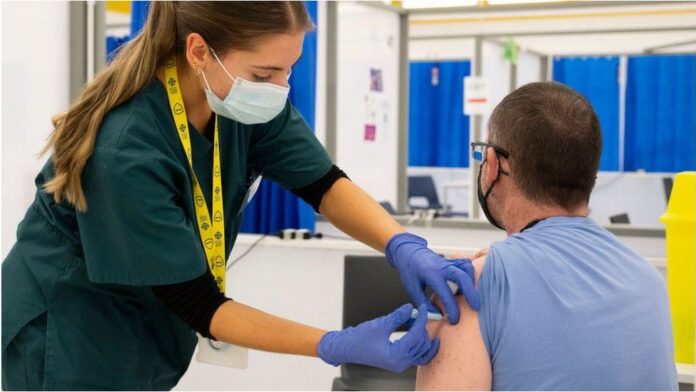The heavily mutated Omicron variant has led to a serious dent in the ability of vaccines to protect us from catching the Covid virus.
Two doses of some vaccines offer almost no protection from an Omicron infection, although they should still greatly reduce the risk of becoming so ill you need hospital care. The vaccines were all developed to fight the first form of the virus that emerged two years ago.
So can a third or “booster” dose of those original vaccines make the difference, or has Omicron already outwitted the protection they can give? Fortunately for us, while the contents of the syringe may be identical, a booster is not just more of the same for the immune system. The protection you’re left with after the third dose is bigger, broader, and more memorable than you had before.
- Covid: JCVI scientists to announce decision on booster rollout
- What the world may learn from Israel’s launch of the Covid-19 vaccine booster
Covid school
Fighting coronavirus is something your immune system has to learn. One option is to figure it out on the job when you encounter the virus for real. However, there is a risk of getting it wrong and ending up seriously ill.
Vaccines are more like a school – a safer environment to further your immune system’s Covid education. The first dose is the primary school education that nails the fundamentals.
Your second and third doses are comparable to sending your immune system to secondary school and then university to dramatically deepen its understanding. It’s not just repeating primary school over and over.
“The immune system is left with a richer knowledge and understanding of the virus,” said Prof Jonathan Ball, a virologist from the University of Nottingham.
He said for all the talk of the dastardly tricks of Omicron, a highly-trained immune system is “an incredibly difficult and hostile environment” for the virus and its variants.

A flurry of laboratory studies and real world data showed the neutralising antibodies you have after two doses of a Covid vaccine were far less effective against Omicron. Prof Danny Altmann, an immunologist from Imperial College London, said you were left with “absolutely zilch” and were a “sitting duck for infection”.
Antibodies are a major beneficiary of this education. These are the sticky proteins that attach themselves to the outside of the coronavirus. Neutralising antibodies can gum up the virus so it can’t invade your cells. Others sit there as the biological equivalent of a flashing neon sign spelling out “kill this virus”.
So back to school. Every dose of the vaccine triggers another round of antibody evolution within the immune system. It seeks out better antibodies that attach themselves more firmly to the virus. It’s a process called affinity maturation.
“Your antibodies are a better fit as time goes on, they are getting fancier and more sophisticated,” said Prof Altmann.
If the antibodies are able to bind more tightly to the coronavirus then it will be harder for Omicron’s mutations to help it wriggle free. And while the new variant is heavily mutated, it is still the same fundamental virus and has parts that have not changed at all.
Further rounds of vaccination also lead to the immune system broadening its antibody repertoire as it finds new ways of attacking the virus.





